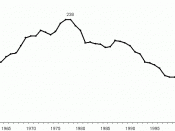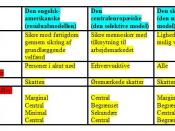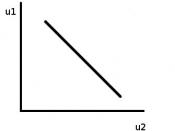The social welfare state that existed for over 60 years in the United States, AFDC in particular, failed to lift its recipients out of poverty, or encourage them to leave poverty behind on their own. (Epstein, 1997) AFDC and other welfare entitilement programs merely eased poverty. (Epstein, 1997) They provided some financial assistance to many people temporarily, and many others for extended periods of time, but in either case they provided no real incentive to work. (Epstein, 1997) For many, lifting themselves out of poverty through hard work was incentive enough by itself. For others, welfare provided a dis-incentive to work. Many single mothers found that welfare benefits were simply more valuable than low-skilled employment. (Jencks, 1997) Neither option would often remove a single mother from poverty. (Edelman, 1997)
Throughout the 1980's and '90's, public opinion began to resent widespread welfare dependency and took issue with the fact that people could live off the welfare state and "avoid working."
(Epstein, 1997) In 1996, president Bill Clinton "changed welfare as we knew it" with the signing of the Personal Responsibility and Work Opportunity Reconciliation Act. (Tanner, 1996) This new law, introduced by Republicans in congress, responded to the public opinion of welfare dependency by further limiting benefits and imposing time limits on benefits that eventually force people off welfare rolls. (Stoesz, 1999) These changes, fueled by swaying public opinion and championed by conservatives, failed to grasp the cause of the "incentive problem" associated with welfare. Yes, AFDC provided a dis-incentive to work, but not because welfare recipients were lazy, benefits allowed single mothers to cash in on out-of-wedlock births, or benefits were lavish. Benefits actually provided very little. The problem was, and is, that a single mother cannot effectively provide for a family on low-wage earnings. (Jencks, 1997) Leaving welfare rolls...



The social welfare state
Wow, this is a wonderfully written informative paper.
2 out of 2 people found this comment useful.